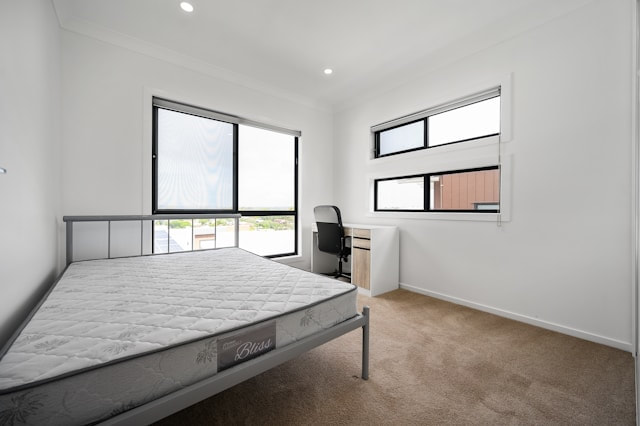|
Maintaining a beautiful and functional home and garden is essential for homeowners and renters alike. At Clark Real Estate, we believe that a well-maintained property not only enhances your living experience but also preserves the value of your investment. Here are some expert tips to keep your home and garden in top shape all year round.
1. Seasonal Maintenance Checks One of the best ways to keep your home in excellent condition is to perform regular seasonal maintenance checks. In the spring, inspect your roof for any winter damage, clean out gutters, and ensure your HVAC system is ready for the warmer months. Summer is an ideal time to check for any cracks in the foundation, inspect windows and doors for leaks, and service your lawn equipment. As fall approaches, clean your gutters again, check your heating system, and winterize your outdoor plumbing. Winter calls for regular snow removal from driveways and walkways, and ensuring your home is properly insulated to keep heating costs down. 2. Lawn and Garden Care A lush, green lawn and vibrant garden can significantly enhance your property's curb appeal. Regular mowing, watering, and fertilizing are key to maintaining a healthy lawn. Use a mulching mower to help return nutrients to the soil and reduce the need for chemical fertilizers. In your garden, choose native plants that are well-suited to your local climate and soil conditions. This not only makes gardening easier but also supports local wildlife. Regular weeding, pruning, and mulching can keep your garden looking its best. 3. Exterior Home Maintenance The exterior of your home is the first thing people see, so it's important to keep it in good condition. Regularly clean and inspect your siding, brickwork, and paint. Pressure washing can remove dirt and grime, making your home look fresh and well-kept. Check for any signs of damage, such as peeling paint or cracks in the siding, and address these issues promptly to prevent further deterioration. Additionally, ensure that your home's exterior lighting is functional and enhances the safety and beauty of your property. 4. Indoor Maintenance Tips Keeping the interior of your home well-maintained is equally important. Regularly check your plumbing for leaks and fix any issues immediately to prevent water damage. Clean and inspect your appliances to ensure they are functioning efficiently. It's also a good idea to test your smoke and carbon monoxide detectors monthly and replace batteries as needed. Declutter your living spaces to create a clean, organized environment that promotes relaxation and well-being. 5. Energy Efficiency Upgrades Improving your home's energy efficiency not only helps the environment but also reduces your utility bills. Consider upgrading to energy-efficient windows and doors, adding insulation to your attic and walls, and installing a programmable thermostat. LED lighting and energy-efficient appliances can also make a significant difference. Regularly servicing your HVAC system ensures it operates efficiently and effectively throughout the year. 6. Pest Control Pests can cause significant damage to your home and garden, so it's important to keep them at bay. Regularly inspect your property for signs of pests such as termites, ants, or rodents. Keep your home clean and free of food debris that can attract pests. In your garden, use natural pest control methods, such as introducing beneficial insects, to keep harmful pests under control. If you notice a pest problem, address it promptly with the help of a professional if needed. 7. Safety and Security A safe and secure home provides peace of mind for you and your family. Regularly inspect and maintain your home's security systems, including alarms, cameras, and locks. Ensure that your smoke and carbon monoxide detectors are working properly and have a fire extinguisher readily available. Outdoor lighting and well-maintained landscaping can also deter potential intruders and keep your property safe. 8. Regular Inspections Regular professional inspections can help identify potential issues before they become major problems. Schedule annual inspections for your roof, HVAC system, plumbing, and electrical systems. These inspections can save you money in the long run by catching small issues early and preventing costly repairs. At Clark Real Estate, we are committed to helping you maintain a beautiful and functional home and garden. By following these tips, you can ensure that your property remains in top condition, enhancing its value and your enjoyment of your living space. Whether you're a homeowner or a renter, regular maintenance is key to a safe, comfortable, and attractive home. For more personalized advice and professional property management services, don't hesitate to contact us. Discover expert tips on how to pack a bed frame and mattress for moving, ensuring safe transport and easy reassembly. Moving to a new home is an adventure, a fresh start that often comes with the challenge of transporting your belongings safely, especially bulky items like your bed. Among these, the bed frame and mattress are particularly cumbersome yet crucial to move with care. A systematic approach is essential to effectively pack a bed frame and mattress for moving. This comprehensive guide will provide detailed steps to ensure everything is moved without damage, ensuring you can have a good night’s sleep in your new home. Pack a Bed Frame and Mattress for Moving: Get the Necessary Materials If you want to properly pack a bed frame and mattress for moving, it’s important to have the right materials on hand. A durable mattress bag or cover is a must-have to shield it from dirt, moisture, and damage. For the bed frame, bubble wrap or moving blankets offer excellent protection against scratches and dents. Packing tape and scissors are essential for securing these wrappings, and a toolset is necessary for disassembling your bed frame. Lastly, a marker is useful for labeling parts, which simplifies reassembly. Investing time in gathering these materials will make your packing process efficient and stress-free. Packing the Mattress Cleaning the Mattress A clean start in your new home begins with a clean mattress. Start by vacuuming thoroughly to remove dust, hair, and other debris. Use a mild detergent and a damp cloth for spot cleaning if there are any stains. Be careful not to soak the mattress, as moisture can lead to mold and mildew. Allow it to air dry completely, which might take a few hours. A clean and dry mattress ensures that when you unpack, you're greeted with a fresh, welcoming bed to rest on after a long day of moving. Wrapping the Mattress Once it is clean and dry, it's time to wrap it for protection. A specialized mattress bag or cover is designed to offer a barrier against dirt, dust, and moisture during transport. Slide the mattress into the bag and seal the open end with packing tape. Make sure the entire thing is enclosed and the bag is secured with no gaps. Clearly label the package with your name and the destination room in your new home. This protects your mattress and simplifies the relocation process, ensuring the movers know exactly where to place it. Disassembling the Bed Frame Step-by-Step Guide The bed frame, often the centerpiece of your bedroom, requires careful disassembly. Start by removing all bedding and the mattress. Then, systematically take apart the frame. Begin with larger components like the headboard and footboard, then continue to the slats and side rails. Use the appropriate tools to loosen and remove screws and bolts. Keep a close eye on all the hardware - losing a single screw can be troublesome during reassembly. A handy tip is to use small plastic bags to store screws and label them according to the part they belong to. Tips for Easy Reassembly Take detailed photos of everything before and during disassembly to facilitate reassembly in your new home. These photos can serve as a reference, making it easier to put everything back together correctly. Labeling each part of the frame can also be immensely helpful. Use stickers or masking tape to mark each piece, corresponding to the photos you've taken. This simple step can save you a lot of time and confusion, ensuring you can quickly get some sleep and rest after a long day of moving. Pack the Bed Frame Protecting Components The bed frame, with its different components, needs to be packed securely to avoid damage. Wrap each part of the frame with bubble wrap or moving blankets. These materials provide cushioning and protect against scratches, dents, and other damages during transit. Pay special attention to corners and protruding parts, as they are more susceptible to damage. Secure the wrapping with packing tape. If you have any loose parts like knobs or decorative elements, remove them and pack them separately to prevent loss or damage. Compact Packing Strategies When packing the disassembled bed frame, it's important to be mindful of space. Arrange the parts in a way that they take up the least amount of space possible without compromising their safety. Larger parts like headboards and footboards can be laid flat, while smaller pieces can be nestled in between. Ensure that all parts are securely wrapped and don’t move around. This careful packing saves space in the moving truck and minimizes the risk of damage during the move. Pack the Bed Frame and Mattress for Moving: Loading and Transporting Loading Tips Putting your mattress and bed frame into the moving truck requires strategy and careful planning, especially if your move is more complex, like a move across the border. For instance, when moving internationally, ensuring that your items are well-protected and securely placed becomes even more crucial due to the longer transit times and additional handling. The mattress should be placed flat against one of the truck's walls to save space and prevent it from bending or folding, which can damage its structure. Similarly, the frame parts should be carefully positioned to avoid shifting during the journey. Using moving straps or ropes to secure them in place is wise, as this ensures that your bed remains stationary and safe, no matter the distance or destination of your move. Unloading and Storage Upon arriving at your new home, unload everything carefully. Store them in a dry, clean area if they can't be reassembled immediately. Also, avoid placing heavy items on top of the mattress, as this can cause permanent damage. Keep the bed frame parts together to ensure easy access for reassembly. Proper unloading and storage are crucial in preserving the condition of your bed until it's ready to be set up in your new space. Conclusion
Moving your bed frame and mattress can be smooth and stress-free with the right preparation and care. This guide on how to pack a bed frame and mattress for moving has walked you through each step to ensure everything arrives in perfect condition, whether you are moving internationally or locally. Each stage protects these essential items, from gathering materials to the final setup. With patience and organization, you'll find that this task can be a simple and straightforward part of relocating to your new home. Photos via: Pexels Pexels Unsplash Unsplash Discover the perfect rental for your lifestyle – explore the advantages of urban vs. suburban rentals to find your ideal fit. In the ever-evolving landscape of modern living, the urban vs. suburban rentals choice has gained remarkable prominence. The urban pulse, resonating with cultural dynamism and swift accessibility, collides with the suburban allure of spacious tranquility and community charm. Navigating this decision requires a balanced understanding of the inherent merits and trade-offs. Whether you yearn for the energy of city lights or the serenity of tree-lined streets, the decision hinges on many factors. Join us as we delve into the contrasting realms of urban vibrance and suburban respite, guiding you through the pros and cons, considerations, and real-life stories illuminating the path to discovering your ideal dwelling. Pros and Cons of Urban Rentals Living in the heart of the city brings a kaleidoscope of opportunities. The dazzling array of cultural events, from concerts to art exhibitions, becomes an extension of your doorstep. Short commutes translate into more time for what truly matters. Networking in urban hubs propels personal and professional growth. However, the glitter comes at a price – a steep one. For example, your rent, like the skyline, often reaches towering heights. Amidst the bustling excitement, tranquility can be elusive. Green spaces are a rare oasis amidst the concrete. Urban living is a dance between the vibrant and the chaotic, where convenience and connectivity often outweigh solitude and space. As you navigate these lively streets, keep in mind the dynamic rhythm that urban rentals offer, making every day a symphony of choices. Pros and Cons of Suburban Rentals Venturing beyond the city limits unveils a world of tranquil possibilities. Suburban rentals embrace spaciousness and storage space and offer room to breathe and grow. The symphony here is one of birdsong, a harmony of calm that nurtures families and individuals seeking respite. The cost of living, like the horizon, tends to be less daunting, allowing financial room for pursuing passions. However, this retreat from the urban hustle can come with its own challenges. Longer commutes stretch the journey between work and home. Cultural epicenters may feel distant, and the pace of life might be more leisurely than lively. It's a trade-off between seclusion and convenience, where the expanse of personal space counterbalances the lack of urban thrills. As you explore these suburban landscapes, remember that every corner holds a promise of serenity, an escape from the urban bustle into a haven of tranquility. Factors to Consider When Making the Urban vs. Suburban Rentals Choice The ultimate decision depends on the unique constellation of your life. Family size, work demands, and personal interests form the cosmic web that guides your choice. If urban pulse syncs with your rhythm, proximity to work and cultural dynamism might win. Suburban quietude beckons if space, tranquility, and a slower pace resonate. Consider the stars in your sky – hobbies, social preferences, and the need for green spaces. For some, the allure of city lights takes precedence; for others, the pull of community charm prevails. Balance your cosmic elements, and remember, there's no one-size-fits-all answer. Your celestial blend shapes the narrative – a bespoke tale of urban allure or suburban sanctuary. Comparing Rental Costs The financial constellation plays a pivotal role in the urban vs. suburban rental choice. Urban living sparkles with opportunities yet often comes with a hefty price tag. Rent, utilities, and daily expenses form a constellation of their own, sometimes dazzling, sometimes daunting. The suburban sky tends to be kinder, with costs generally more grounded. Larger spaces and lower rents form the celestial equation. Consider how the financial stars align with your aspirations and resources. A balanced budget might shine brighter in the suburban night, while urban living could demand a sturdier financial launchpad. Balance the cosmic scales between affordability and ambition, and let the monetary stars guide your path to the right rental realm. Case Studies: Real People, Real Choices Let's peer into the stories of those who navigated this cosmic crossroads. Emily, an artist, embraced urban life for its creative pulse, shaping her inspirations. Mark, a father of two, sought suburban serenity, trading city lights for backyard constellations. Emily's canvas flourished amidst the city's vibrant hues, while Mark's children found playground galaxies within their suburban universe. Their different yet equally valid cosmic coordinates showcase how personal narratives shape rental choices. Whether chasing dreams beneath city constellations or cultivating family bonds in suburban galaxies, these tales underscore the individuality of this decision. The cosmic tapestry weaves unique threads, painting distinct portraits in the skies of urban and suburban living. Finding Your Ideal Rental: Tips and Resources
Navigating the diverse rental landscape demands more than just online searches and visits. Many rentals embrace the coziness of compact living spaces. As you embark on this journey, keep in mind that sometimes you might need to expand beyond the confines of your rental. If you find yourself in a situation where space becomes a precious commodity, it's crucial to prepare your items for storage. This is where must-have storage supplies for first-time renters come into play. You need to get the right materials, including packing essentials and containers, to ensure your belongings are well-prepped before they go into a storage unit. Renting a storage unit becomes a great option when you want to declutter without parting with cherished possessions. When pursuing the ideal rental, it's important to think creatively about how to make the most of your space, even beyond the walls of your home. In Conclusion In the grand tapestry of urban vs. suburban rentals, the key is finding the right fit for you. As you traverse the labyrinth of choices, remember that no cosmic map holds all the answers. Your lifestyle aspirations, practical needs, and personal preferences paint the canvas. Urban vivacity or suburban serenity? The choice shapes your daily narrative. From the city's vibrant rhythm to the serenity of suburban streets, every step in this journey adds a stroke to your unique story. So, explore the pros and cons, balance your budget, consider your cosmic priorities, and find your ideal rental. As you forge ahead, remember that amidst the sea of options, it's your voice that guides you, leading you to the destination that resonates most profoundly with the symphony of your life. Photos via: Pexels Pexels Pexels Pexels Check out our guide on a new trend in rental housing for millennials and Gen Z. Make your properties more appealing to the younger crowd! If you want to make the most of your rentals, keep up with the latest trends. So, let’s go over a new trend in rental housing for millennials and Gen Z. Flexibility for nomadic lifestyles Flexibility for nomadic lifestyles has become a crucial consideration for millennials and Gen Z when choosing housing. Remote work and a desire for adventure have led young people to seek short-term leases and co-living options. That allows them to explore different locations without being tied down to long-term commitments! As a result, this shift in lifestyle has naturally changed how people approach negotiating rent with a landlord. People are now more inclined to discuss flexible terms that align with their nomadic preferences, such as month-to-month agreements or the option to sublet the space while they travel. Landlords, too, have recognized the benefits of accommodating these preferences. As a result, they attract a broader pool of potential tenants and fostering a positive landlord-tenant relationship! Co-living spaces fostering community Co-living spaces have emerged as a trend that fosters a strong sense of community among millennials and Gen Z renters. These shared living environments offer a unique blend of privacy and social interaction, encouraging residents to form meaningful connections. With shared amenities and events, co-living spaces create an atmosphere that combats loneliness and isolation, prevalent challenges among young adults. The communal living approach fosters a sense of belonging and support, where residents can collaborate, network, and share experiences. So, co-living spaces provide a comfortable environment and opportunities for professional and personal growth. Emphasis on sustainability There's a notable emphasis on sustainability in rental housing for millennials and Gen Z. With a growing awareness of environmental issues; young people are actively seeking eco-friendly options. Hybrid housing developments incorporate sustainable design elements, such as energy-efficient appliances, renewable energy sources, and waste reduction initiatives. This eco-conscious approach aligns with the values of environmentally conscious individuals and reduces their carbon footprint. So, sustainable housing attracts people who want to impact the planet while enjoying comfortable living spaces positively. Smart technology integration Smart technology integration has become a prominent feature in rental housing for millennials, and Gen Z. The seamless incorporation of smart home automation elevates the living experience, offering convenience and efficiency. These tech-savvy features allow residents to control various aspects of their homes, from smart locks and thermostats to voice-controlled systems. This innovative integration simplifies tasks and enhances security and energy efficiency, aligning with modern renters' preferences. So, the appeal of smart technology lies in its ability to create a connected and futuristic living environment that caters to the tech-savvy needs of the younger generations. As smart home devices evolve, properties that embrace these cutting-edge technologies will likely attract a wider pool of tech enthusiasts, ensuring a competitive edge in the housing market. Inclusive amenities and services Inclusive amenities and services have become a key factor in rental housing. All-inclusive packages covering utilities, internet, maintenance, and cleaning services offer convenience and ease for young people. These comprehensive offerings enhance the overall experience and save valuable time and money. Amenities such as fitness centers, yoga studios, and co-working spaces within residential buildings also cater to holistic lifestyle needs. However, the experts from Butter Move do recommend prioritizing storage facilities over some of the others. Ample storage space can declutter living areas, making the most of limited space in urban settings. Finally, inclusive amenities and services attract people and foster a positive relationship between landlords and renters. That creates a win-win situation for both parties in the competitive housing market! Embracing the gig economy The gig economy has significantly impacted the rental housing market, and rental property management has adapted to cater to the needs of gig workers. With the rise of freelancers and young professionals embracing flexible work arrangements, co-living spaces, and rental properties are integrating co-working spaces within their developments. That fosters productivity and collaboration for those who work from home. Landlords and property management companies recognize the value of accommodating gig workers by offering short-term leases and flexible rental terms. So, embracing the gig economy has attracted a new pool of renters and created a thriving community of like-minded individuals who share similar work values and preferences. As the gig economy continues to thrive, rental property management is continually evolving to provide innovative and supportive solutions that meet the changing demands of the modern workforce. Embracing the minimalist lifestyle Embracing the minimalist lifestyle has become a prominent trend in the rental housing market, with millennials and Gen Z opting for clutter-free and intentional living. This shift towards minimalism has increased demand for rental properties that offer space-efficient and well-designed units. Rental properties are incorporating smart storage solutions and innovative space-saving techniques to accommodate this preference. The focus on minimalism creates a calming and organized living environment and aligns with the eco-conscious values of the younger generations. The uptick in creative storage solutions and the like reflects the evolving needs of modern renters who seek to make the most of their living spaces while reducing waste and unnecessary possessions. So, by catering to the minimalist lifestyle, rental property developers and managers are attracting a new wave of tenants who value simplicity, functionality, and mindful living. Affordable living solutions
Affordable living solutions have become a crucial consideration for millennials and Gen Z in the rental housing market. With soaring housing prices, homeownership has become a distant dream for many young individuals. Rental housing offers a more affordable alternative, enabling them to live in urban centers without breaking the bank. After all, shared living spaces and cost-sharing opportunities make city living more accessible, even on a limited budget. This cost-effective approach attracts a wider pool of young renters who prioritize practicality and financial security. As the demand for affordable rental housing rises, developers and property managers are innovating to create sustainable and affordable living options that cater to the evolving needs of the budget-conscious modern renter. Making the most of the new trends in rental housing for millennials and Gen Z Our guide on a new trend in rental housing for millennials and Gen Z should position you well to take advantage of things! So, as long as you use what you learned, you’ll make your rental property a success. Photos via: Unsplash Pixabay Pixabay Pixabay Master the art of negotiating rent with your landlord using these six valuable tips for a fair and successful agreement. Negotiating rent with a landlord can be a daunting task, but it is a skill that every tenant should master. With rental costs rising and housing affordability becoming an increasing concern, knowing how to negotiate rent effectively can significantly affect your monthly expenses and overall financial well-being. This article will explore six valuable tips to help you successfully negotiate rent with your landlord, ensuring a fair and mutually beneficial agreement.
Do Your Research Beforehand Before finding a perfect new home and entering into rent negotiations, gathering relevant information to support your case is essential. Understanding the local rental market will provide valuable insights into your area's average rental rates and trends. This knowledge will empower you to make a reasonable and well-informed proposal to your landlord. Additionally, collect data on comparable properties in your neighborhood. Evidence of similar rental units with lower prices or better amenities can give you leverage during negotiations. Knowing your landlord's perspective and financial expectations will also help you effectively tailor your approach to meet their requirements. Build a Strong Tenant Profile When engaging in rent negotiations, presenting yourself as an ideal tenant can greatly influence your landlord's decision. Highlight your positive rental history, including on-time payments and responsible tenancy. Providing references from previous landlords who can vouch for your reliability can add credibility to your profile. Furthermore, emphasize your stable income and financial responsibility. Demonstrating that you, as a tenant, have a steady job and sufficient income to cover the rent will assure the landlord of your ability to meet your financial obligations. Timing Is Key Timing plays a crucial role in the success of rent negotiations. Consider approaching the landlord during off-peak rental seasons or when the property has been vacant for an extended period. Landlords may be more willing to negotiate if they are eager to secure a tenant quickly. Moreover, leverage your position during lease renewal time. Many landlords prefer to retain their existing tenants rather than search for new ones, as this reduces vacancy periods and related expenses. That presents a favorable opportunity to discuss rent reductions or other favorable terms. Offer Incentives Sometimes, landlords may be reluctant to reduce the rent outright. In such cases, proposing additional incentives can be a winning strategy. For instance, suggest signing a longer lease term for a lower rent. A multi-year lease commitment can provide stability for both parties and alleviate the landlord's concerns about frequent turnovers. Additionally, you can offer to perform minor repairs or maintenance around the property. That reduces the landlord's workload and showcases your commitment to taking care of the rental unit as if it were your own. Showcase Willingness to Compromise But Be Persuasive Approaching rent negotiations with an open mind and a willingness to compromise is essential for reaching a mutually beneficial agreement. Be prepared to meet the landlord in person to build rapport and establish a positive relationship. Engaging in respectful and considerate discussions can help create an atmosphere of trust. Listen carefully to the landlord's concerns and address them proactively. Understand their perspective and show that you value their input. Flexibility on specific terms and conditions, such as move-in dates or small adjustments to lease clauses, can go a long way in fostering a successful negotiation. A well-prepared and persuasive argument can significantly influence the outcome of your rent negotiations. Remember that you will have to save money to relocate to the new apartment. Experts from U. Santini Moving and Storage New York advise that setting a budget is the best solution, even with the best negotiating techniques. When speaking to a landlord, use data and facts to support your request for a rent reduction. Present recent market trends and statistics, showcasing that your proposed rent is fair and aligned with the current rental market. Highlight any improvements or upgrades you have made to the property during your tenancy. Pointing out how you have contributed positively to the property's upkeep and value can strengthen your case for a rent adjustment. Furthermore, articulate how a lower rent benefits both parties. For example, a reduced rent could lead to a longer tenancy, reducing the landlord's turnover costs and ensuring a steady rental income. Prepare the Budget and Negotiate with Confidence Saving money while moving to a rental apartment is essential to ensure a smooth transition and to have enough funds to cover your rent and other living expenses. One effective way to achieve this is to lower your relocation expenses. Start by decluttering, selling, or donating items you no longer need, as it will reduce moving costs and earn you some extra cash. Consider DIY packing and moving, as hiring professional movers can be costly. Opt for budget-friendly moving supplies and use what you already have, like suitcases and boxes. Additionally, compare moving companies' prices and choose the most affordable option. Being proactive and resourceful during your move can free up more money to save for rent and set a solid financial foundation for your new rental apartment. Confidence and respect are vital when negotiating rent with a landlord. Approach the discussion with a calm and professional demeanor. Avoid making demands or resorting to threats, which can sour the relationship and hinder a successful negotiation. Express your appreciation for the landlord's consideration and willingness to engage in the negotiation process. Demonstrating gratitude and respect can leave a positive impression on the landlord and increase the likelihood of reaching a favorable agreement. Once both parties have reached a mutual understanding, ensure that the agreement is put in writing. Whether you’re renting an apartment or a house, you should review the revised lease terms carefully. Also, make sure to seek clarification on any points that may be unclear. Once all parties are satisfied with the terms, sign the new lease, and keep a copy for your records. Conclusion on Negotiating Rent Negotiating rent with a landlord may seem intimidating, but the right approach and preparation can lead to significant savings and improved rental terms. Doing thorough research, building a strong tenant profile, timing your negotiations strategically, offering incentives, showcasing a willingness to compromise, presenting a persuasive argument, and negotiating confidently and respectfully can enhance your chances of reaching a successful rent negotiation. Remember, a positive landlord-tenant relationship is built on effective communication and mutual understanding. Photo via Unsplash Check out our creative storage solutions for your rental home to improve your property, and increase its appeal! If you want to use the space in your home optimally, it’ll take a bit of imagination, especially if you don’t want to make any major changes to the property! So, here are some creative storage solutions for your rental home. Utilize vertical space Regarding creative storage solutions for your rental, utilizing vertical space is a smart strategy. By thinking vertically, you can make the most of limited floor space. So, install floating shelves on your walls to create stylish displays for books, decorative items, or kitchen supplies. You can put shelving in cheaply and easily, no matter if you decide on a furnished vs. unfurnished rental, too! Another space-saving solution is using over-the-door organizers, perfect for storing shoes, accessories, or cleaning supplies. Don't forget to incorporate wall-mounted hooks and racks for hanging coats, hats, and bags. So, whether you go with floating shelves, over-the-door organizers, or wall-mounted hooks, utilizing vertical space will help maximize storage in your rental home without sacrificing valuable floor space. Make use of underutilized spaces Don't overlook the potential of underutilized spaces in your quest for creative storage solutions for your rental. These often-overlooked areas can provide valuable opportunities. Consider utilizing the area under your bed by using containers or bed risers. That allows you to place items like linens, out-of-season clothing, or even extra shoes there. Another underutilized space is the area above doorways or in unused corners. You can put floating shelves in these areas to showcase decorative items or create a small library. Additionally, don't forget about the areas above your kitchen cabinets. These are perfect for storing infrequently used kitchen appliances, extra dishes, or decorative baskets. Multi-functional furniture When maximizing storage in your rental home, multi-functional furniture is a game-changer. Furniture pieces that serve multiple purposes can help you make the most of your home. So, consider investing in ottomans or benches with built-in compartments to place extra blankets, pillows, or books. Bed frames with built-in drawers or shelves are also a great option for maximizing the utility of your bedroom. They provide additional storage for clothing or other items, eliminating the need for a separate dresser. Another multi-functional furniture piece is a room divider with shelves or compartments. It creates a sense of privacy and separation in open floor plans and provides extra storage areas for books, plants, or display items. Just remember that the moving experts from movingforwardgroupinc.com note that moving this type of furniture can be tricky without professional assistance! Creative closet solutions When it comes to organizing your rental home, don't neglect your closets. Implementing creative solutions can transform your closets into efficient storage. For example, hanging organizers are perfect for neatly arranging shoes, accessories, and folded clothes. They maximize the use of verticality and keep everything within easy reach. Another great idea is to install tension rods for additional hanging space. That is particularly useful for expanding your wardrobe or organizing scarves and belts. To further enhance organization, utilize bins and baskets. These can be labeled and used to categorize items like hats, gloves, or seasonal clothing. Since closets can be easily closed and gaining access to them is not easy, they can also contribute to making a more pet-friendly rental by keeping items dangerous to animals out of reach. Efficient kitchen storage Efficient kitchen storage is essential for a well-organized and functional rental home kitchen. One creative solution is to install magnetic strips on your walls. That lets you put knives and metal utensils away within easy reach, freeing up drawers. Another idea is to utilize pegboards. Mount them on your kitchen wall and hang pots, pans, and kitchen tools for easy access and a visually appealing display. Investing in stackable containers for pantry items can help maximize space and organize your ingredients. With stackable containers, you can utilize vertical space efficiently while keeping your pantry neat and clutter-free. Creative bathroom storage Creative bathroom storage solutions can make your rental home's bathroom functional and organized. So, utilize adhesive hooks to hang towels, robes, or even loofahs, keeping them within easy reach. Install a shower caddy or organizer to keep toiletries neatly organized and easily accessible during your daily routine. Small baskets or bins can be used to corral cosmetics, bathroom essentials, or even extra toilet paper rolls. These containers can be placed on countertops or cabinets for a clutter-free look to improve your rental! Optimize small spaces Optimizing small spaces in your rental home is key to maximizing storage and functionality. For example, consider using a fold-out table or desk that can be easily tucked away when not in use. This furniture piece provides a designated workspace without taking up valuable floor space! Another space-saving solution is a Murphy bed. When folded up, it frees up the room for other activities, and when unfolded, it provides a comfortable sleeping area. Additionally, wall-mounted organizers or pegboards are excellent for organizing office or craft supplies. They keep items off the floor and create a visually appealing display. So, remember that small spaces can be versatile and functional with the right solutions, making every inch count. That should motivate you to get creative and maximize your compact living space! Outdoor storage solutions Outdoor storage solutions are essential for keeping your rental home organized and clutter-free. So, invest in outdoor storage containers for gardening tools, sports equipment, or seasonal items. These containers protect your belongings from the elements while keeping them easily accessible. Consider vertical gardening techniques to maximize plant space if you have a yard. Vertical planters or hanging baskets add a touch of greenery without taking up valuable ground space. However, you can always consider renting a unit if you don't have access to a yard or enough space. Renting a storage unit allows you to safely store larger items like furniture or excess belongings, giving you peace of mind and creating more space in your rental home. Improving your rental’s utility
With what we covered on creative storage solutions for your rental home, you should know where to start! Of course, don’t be afraid to go off-script and experiment independently. Who knows, you might be able to come up with even better solutions. Photos via: Pixabay Pixabay Unsplash Unsplash Furnished vs. unfurnished rental: the ultimate pros and cons guide. Find out which option can maximize your returns. Welcome, landlords and property owners, to the ultimate showdown between two rental property titans: furnished vs. unfurnished rental. If you've ever found yourself pondering over the decision of whether to deck out your rental with stylish furniture or leave it as a blank canvas, you've come to the right place. Choosing between these two options can have a significant impact on your bottom line and the type of tenants you attract. Picture this: a furnished rental that exudes luxury and convenience, attracting young professionals and short-term renters willing to pay top dollar. On the other hand, an unfurnished rental, a blank canvas that allows tenants to unleash their inner interior designer, is potentially appealing to long-term tenants seeking a place to call home sweet home. We're here to break down the pros and cons of each option, helping you make an informed decision that aligns with your goals as a savvy landlord. The Pros and Cons of Furnishing Your Rental Just imagine the oohs and aahs from potential tenants as they step into your stylishly appointed abode. But is furnishing your rental truly worth the investment? Let's explore the pros and cons and see if this path to rental glory is right for you. Pros of Furnished Rentals
Cons of Furnished Rentals
Pros of Unfurnished Rentals
Cons of Unfurnished Rentals
Factors to Consider When deliberating on furnished vs. unfurnished rental, several factors come into play. First, consider the location and target market of your property. Are you in a bustling city center catering to young professionals or a suburban area attracting families? Next, research rental rates and market demand in your area. Compare the potential income from furnished rentals against the long-term stability of unfurnished options. The size and type of property also matter. Small studio apartments may benefit from being furnished, while larger homes might be better suited for unfurnished rentals. Think about the rental duration you're targeting. Short-term tenants may prefer furnished rentals, while long-term tenants often appreciate the freedom to bring their own furniture. Finally, consider maintenance and management. Furnished rentals require more hands-on management, while unfurnished rentals typically involve less maintenance and allow tenants to take responsibility for their furnishings. Photos via: Unsplash Unsplash Unsplash Unsplash Discover the pros and cons of long-term and short-term leases for renting a home as a digital nomad. Make an informed decision today! Embarking on the thrilling journey of renting a home as a digital nomad opens up a world of possibilities. As the global trend of digital nomadism continues to soar, finding suitable accommodation becomes paramount. This article delves into the intriguing debate between long-term and short-term leases, offering insights and guidance for digital nomads seeking their ideal abode. Whether you crave stability and predictability or desire flexibility and variety, we explore the pros and cons of each option. So, join us as we navigate this exciting decision-making process, empowering you to create your perfect home base as a digital nomad. Understanding Digital Nomad Lifestyle Embracing the digital nomad lifestyle grants individuals the freedom to work remotely while exploring the world. With flexibility as its cornerstone, this way of life offers endless personal and professional growth opportunities. The benefits are abundant: escape the monotony of a traditional office, immerse yourself in diverse cultures, and cultivate a balanced work-life dynamic. However, challenges arise when finding suitable accommodations that cater to this unique lifestyle. By understanding the intricacies of the digital nomad lifestyle, you'll be empowered to navigate the challenges and make informed decisions for finding your ideal accommodations. Long-Term Leases: Pros and Cons Long-term leases offer certain advantages and disadvantages for renting a home as a digital nomad. On the positive side, long-term leases provide stability and predictability, allowing you to establish a home base while exploring new destinations. They often come with lower rental rates, especially for extended stays, helping to manage your budget effectively. Having a fixed address can be beneficial for receiving mail, setting up utilities, and even registering for local services. However, the lack of flexibility can be a drawback, as digital nomads thrive on the ability to move while working remotely. And if unexpected opportunities arise in different locations, balancing work and relocation can be challenging. Long-term leases also require a significant financial commitment, including upfront deposits and potential termination fees. Moreover, feeling tied down to one place may dampen the adventurous spirit that drew you to the digital nomad lifestyle in the first place. Consider your priorities and future plans before committing to a long-term lease, ensuring they align with your aspirations and fulfill your dynamic digital nomad needs. Short-Term Leases: Pros and Cons Short-term leases offer their own set of advantages and disadvantages for renting a home as a digital nomad. Their flexibility is a major perk, allowing you to move frequently and explore diverse locations. This variety can enrich your experiences and offer a fresh perspective. Moreover, short-term leases require a minimal financial commitment, making them suitable for those on a tighter budget or uncertain plans. However, it's important to consider the potential drawbacks. Short-term leases often come with higher rental costs as landlords factor in the flexibility they offer. Availability can also be limited, particularly in popular destinations or peak seasons. Searching for new accommodations can be time-consuming and disrupt your work routine. Additionally, the transient nature of short-term leases means you may have to adjust to different living environments more frequently. Despite these challenges, short-term leases are ideal for digital nomads prioritizing freedom and craving new adventures. Carefully weigh the pros and cons and align them with your personal preferences and goals to make an informed decision that suits your dynamic digital nomad lifestyle. Factors to Consider When Choosing a Lease When choosing a lease for renting a home as a digital nomad, several key factors come into play. Firstly, consider your budget and financial considerations, ensuring the rent is sustainable in your desired location. Next, evaluate your desired length of stay, as this will determine whether a long-term or short-term lease is more suitable. Flexibility requirements are crucial, as you may need the freedom to move frequently. Additionally, be aware of local laws and regulations governing leases in your chosen destination. Consider the amenities and services you require, such as reliable internet access. Lastly, if you require assistance with the physical move, experts from Affordable Reliable Moving Company California advise seeking advice from professional movers. They have the expertise and experience to handle the logistics of your move efficiently. Prioritize finding reliable movers who specialize in international or long-distance relocations. Research their reputation, read reviews, and compare quotes to ensure you get the best service within your budget. Communicate your specific needs to the movers, such as fragile equipment or time-sensitive deadlines. By entrusting the moving process to professionals, you can focus on other aspects of your digital nomad lifestyle, knowing that your belongings will be handled carefully and arrive safely at your new home. Making the Decision: Long-Term vs. Short-Term
When deciding between long-term and short-term leases for renting a home as a digital nomad, careful consideration is key. Assess your priorities and lifestyle, weighing the pros and cons of each option. Consider your current and future work arrangements and the level of flexibility you require. Consider factors such as budget, desired length of stay, local laws, and amenities needed. Seek advice from fellow digital nomads or online communities to gain valuable insights. Remember, there is no one-size-fits-all answer, as it depends on your unique circumstances. Trust your instincts and make the best decision with your goals and aspirations as a digital nomad. Conclusion The decision of renting a home as a digital nomad requires careful consideration of individual preferences and circumstances. Whether you opt for a long-term lease, embrace stability and establish a home base, or choose the freedom of short-term leases, the choice ultimately depends on your desired flexibility and financial commitment. Remember to assess your budget, length of stay, and your chosen location's local laws and regulations. Seek advice from fellow digital nomads, tap into online communities, and trust your instincts. Happy home hunting! Photos via: Pexels Pexels Pexels Pexels Looking for a pet-friendly rental property in Reno? Discover how to find the perfect home for you and your furry friend. Are you searching for the perfect pet-friendly rental property in Reno? Look no further! Living in a pet-friendly environment benefits you and your furry companion. This article will guide you through finding the ideal rental property that welcomes pets with open arms. By researching pet-friendly neighborhoods, setting your budget and requirements, engaging with real estate agents, exploring online listings, attending open houses, and understanding pet policies, you'll be well on your way to discovering a wonderful home for you and your beloved pet. Let's get started on this exciting journey! Researching Neighborhoods to Find the Perfect Pet-Friendly Rental Property in Reno When searching for a pet-friendly rental property in Reno, it's essential to research the neighborhoods that cater to your furry friend's needs. Start by exploring Reno's pet-friendly reputation and the areas known for its pet-friendly amenities, such as parks and walking trails. Utilize online resources that provide detailed information about pet-friendly neighborhoods and their proximity to pet-friendly establishments. Zapt Movers California experts advise always seeking help from professional movers with experience with relocating pets. They can offer valuable insights and recommendations to make your relocation much easier. Conducting thorough research will increase your chances of finding a pet-friendly neighborhood that you and your furry companion will love. Setting Your Budget and Requirements Establish a budget before searching for a rental property and determine your requirements. Evaluate your financial capacity and set a realistic budget considering pet ownership costs. Next, identify your particular requirements for a pet-friendly property, such as size, amenities, and any breed restrictions. It's important to balance your needs and the availability of pet-friendly rentals within your budget. By outlining your budget and requirements from the outset, you'll streamline your search process and increase the chances of finding the perfect property that meets your and your furry friend's needs. Online Listing Platforms and Apps Online listing platforms and apps are excellent resources for finding rentals. Take advantage of popular platforms that feature rental listings in the area. Use advanced search filters to narrow your options based on pet-friendly criteria, such as allowing specific breeds or accommodating multiple pets. Set up alerts about new pet-friendly listings that match your preferences. These platforms provide detailed property information, photos, and contact details, making it convenient to explore available rentals from the comfort of your home. Embrace the convenience and efficiency of online listing platforms and apps to discover your dream pet-friendly rental in Reno. Engaging with Real Estate Agents and Property Management Companies Engaging with real estate agents and property management companies is crucial in finding the right property in Reno. When moving from San Francisco to Reno, South San Francisco movers advise seeking assistance from professional movers familiar with the relocation process. They can provide helpful guidance and logistics support for your move. Reach out to reputable moving companies to ensure a smooth transition. Additionally, connect with local real estate agents and Reno property management companies specializing in pet-friendly rentals. Their expertise will be invaluable in finding the ideal home for you and your furry companion. Attending Open Houses and Property Visits Attending open houses and property visits is crucial—schedule appointments to visit potential properties and get a firsthand look at the layout and surroundings. Observe if there are any pet-friendly features like fenced yards or nearby parks. Ask landlords or property managers about their pet policies, including any restrictions or additional fees. Being present during property visits allows you to assess if the property meets your pet's needs and if it aligns with your expectations. Don't miss out on this valuable opportunity to evaluate the suitability of the rental property for you and your furry friend. Understanding Pet Policies and Additional Fees
Understanding pet policies and additional fees is crucial. Carefully review lease agreements and pet policies provided by landlords or property managers. Pay close attention to specific rules or restrictions regarding pet size, breed, or the number of pets allowed. Inquire about pet deposits, pet rent, or any other additional fees associated with having a pet in the rental property. Seek clarity on the terms and conditions surrounding pets to avoid any surprises or misunderstandings down the line. By understanding and complying with the pet policies and fees, you can ensure a smooth and harmonious living experience for you and your beloved pet. Seeking Testimonials and Reviews Look for testimonials that highlight pet owners' experiences in specific properties or neighborhoods. Additionally, explore online reviews that discuss the property's pet-friendliness and the responsiveness of the management team. Joining local online communities or social media groups dedicated to pet owners can also provide firsthand experiences and recommendations. By gathering feedback from others, you can make more informed decisions and better understand what to expect in terms of pet-friendly amenities, policies, and overall satisfaction. Conclusion Finding the perfect pet-friendly rental property in Reno is an exciting journey that requires careful research and consideration. By researching pet-friendly neighborhoods, setting your budget and requirements, engaging with real estate agents, exploring online listings, attending open houses, understanding pet policies, and seeking testimonials, you'll be well-equipped to find a home that accommodates you and your furry friend. Embrace the benefits of living in such a rental and create a loving and joyful home for your beloved pet. Happy house hunting! Photos via: Pexels Pexels Pexels Pexels Discover the key factors to consider when choosing between renting a house vs. renting an apartment. Explore the advantages and disadvantages. When finding a place to live, one of the most important decisions is renting a house or an apartment. Both options have advantages and disadvantages, and choosing the right one depends on various factors such as budget, lifestyle, and location. This article will explore the key considerations regarding renting a house vs. renting an apartment.
Overview of renting a house The first option offers several advantages when renting a house vs. renting an apartment. One of the primary benefits is the ample space and privacy it provides. Houses generally have multiple bedrooms, a living room, a kitchen, and often a backyard. This extra space is particularly beneficial for families or individuals who require more room for storage, hobbies, or entertaining guests. Additionally, renting a house often means accessing outdoor amenities such as a garden or a patio. If you enjoy spending time outdoors or have pets that need space to roam, this is a perfect solution for your new home. Moreover, renting a house allows for more customization options. Tenants may be free to paint the walls, hang pictures, or make other cosmetic changes, giving them a sense of ownership and personalization. However, renting a house also comes with some drawbacks. The rental costs for houses are generally higher than apartments due to the larger size and additional amenities. Additionally, tenants are typically responsible for maintenance and repairs, which can be costly and time-consuming. Considering these factors and assessing one's ability to handle the additional responsibilities associated with renting a house is essential. Overview of renting an apartment Renting an apartment has its own set of advantages. One of the most significant benefits is the lower rental costs compared to houses. Apartments are generally more affordable due to their smaller size and shared facilities. This makes them attractive to individuals on a tight budget or those looking to save money. Another advantage of renting an apartment is the access to shared amenities. Many apartment complexes offer a gym, swimming pool, or communal areas, which tenants can enjoy without extra expenses or maintenance. This can contribute to a more convenient and enjoyable lifestyle. Moreover, renting an apartment means that the landlord or property management usually handles maintenance and repairs. This can be a significant relief for tenants who do not want to deal with the hassle and cost of fixing things themselves. However, apartments also have their drawbacks. The limited space and lack of privacy can be a concern, especially for families or individuals who value their personal space. Outdoor areas are often limited or nonexistent, which can be disappointing for those who enjoy gardening or spending time outside. When discussing renting a house vs. renting an apartment, the second option typically has restrictions on customization. Tenants may be limited in making significant changes to the apartment, such as painting walls or making structural modifications. This lack of flexibility may be a drawback for those wanting more control over their living space. Factors to consider when choosing between renting a house vs. renting an apartment When deciding between renting a house or an apartment, several factors should be taken into account:
Tips for moving into a rental home When moving into a rental house or apartment, choosing the most efficient ways to relocate your belongings is important. Whether you choose a house or an apartment, there are several ways to ensure a smooth transition. Firstly, you can opt for professional movers who will handle your household goods' packing, loading, and transportation. This relieves the stress of moving heavy furniture and delicate items. Alternatively, if you prefer a DIY approach, you can gather friends or family members to help pack and load your belongings into a rented moving truck. Another option is to utilize portable storage containers, which allow you to pack at your own pace and have them transported to your new rental property. Making a final decision To make an informed decision between renting a house or an apartment, consider the following tips:
Conclusion Choosing between renting a house vs. renting an apartment is a crucial decision that depends on various factors, including budget, lifestyle, and location. While renting a house offers more space and privacy, it comes with higher costs and additional responsibilities. On the other hand, apartments are more affordable, offer shared amenities, and relieve tenants of maintenance duties, but they often come with limited space and customization options. By considering these factors and weighing your priorities, you can make a decision that suits your unique circumstances. Author’s bio: Jane Smith is a highly experienced content creator and blogger. Her work is focused on writing about family, moving, real estate, and home design. With several years of experience working with diverse clients like müv | Trusted Florida Movers, Jane aims to provide her readers with valuable insights and practical tips, helping them easily navigate various aspects of their lives. Photo via Unsplash |
Clark Real Estate
305 W. Moana Ste C Reno, NV 89509 (775) 828-3355 Reno Property Management
All
|

































 RSS Feed
RSS Feed

